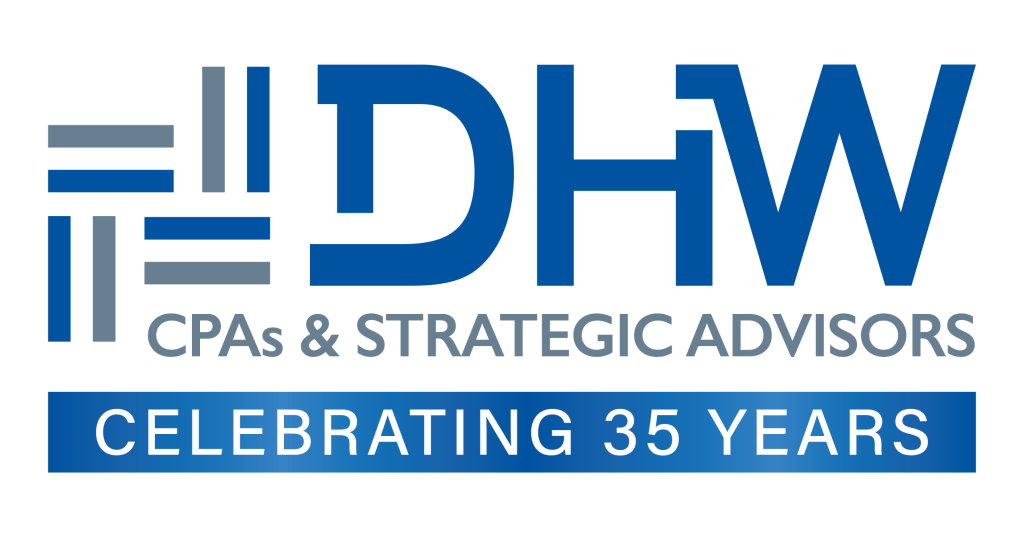Starting and growing a business is an immense achievement, but the real challenge often lies in planning for the future— when it’s time to step back and pass the torch. This transition can be fraught with financial intricacies, legal hurdles, and emotional decisions that require careful navigation to ensure a successful handover. Robust succession planning can prepare the family-owned enterprise for new leadership or new owners while enhancing the financial stability of the business and its shareholders. This article explores six ways a CPA can assist in developing a comprehensive plan that helps business owners achieve their transition goals while avoiding costly missteps.
1. Start the Conversation Early
The first and often the most crucial step in succession planning is starting the conversation. Business owners, especially founders, may hesitate to begin formal succession planning because they are deeply involved in the business or find it difficult to part with something they’ve nurtured for years. Although they recognize the importance of succession planning for the company’s future, finding the time and courage to initiate this process can be challenging.
A CPA, who likely has a deep understanding of your business, industry, key employee roles, and family dynamics, can play a pivotal role in initiating these discussions. They can assist with helping answer:
- Should I pass the business on to family members, transition it to employees, or explore the option of selling to an external buyer?
- How much income do I need from the business to secure my retirement?
- What is the current valuation of my business?
- What strategies can I use to minimize taxes when transferring or selling my ownership stake?
At DHW, our professionals are experienced in helping business owners navigate these early stages, ensuring that the conversation leads to actionable planning.
2. Optimize Tax Planning
Tax planning is a critical component of any succession plan. Your CPA can help evaluate your current business structure and identify opportunities to minimize the tax impact of any future succession or exit plan. This might involve:
- Gifting shares: To maximize the lifetime estate tax exemption.
- Evaluating the applicability of Qualified Small Business Stock (QSBS) tax exemptions: For potential tax savings.
- Considering Employee Stock Ownership Plans (ESOP): To facilitate a smooth transition while optimizing tax benefits.
Each of these strategies requires careful consideration and time to implement, making it essential to engage with your tax advisor early.
3. Leverage Strategic Financial Analysis
A CPA can provide invaluable insights by conducting a thorough financial analysis. This involves reviewing your company’s financial statements, tax returns, current estate plans, personal balance sheets, life insurance policies, and more. This analysis can lead to recommendations that strengthen your succession plan, such as:
- Maximizing current cash flow: Ensuring the business remains financially robust.
- Assessing and mitigating risks: Identifying potential vulnerabilities.
- Preparing financial models: Assisting with scenario planning for different succession outcomes.
- Recognizing tax implications: Understanding the financial consequences of the succession plan.
At DHW, our advisory services are built on a foundation of in-depth financial analysis, providing business owners with the clarity needed to make informed decisions about the future of their enterprise.
4. Establish an Accurate Business Valuation
An accurate business valuation is crucial to every aspect of your succession plan. A qualified CPA can assist in obtaining a defensible, independent appraisal, which is essential for:
- Equal distribution of business and estate assets: Ensuring fairness among heirs.
- Securing insurance and financing: Supporting financial stability during the transition.
- Supporting tax strategies: Maximizing tax efficiency.
The valuation not only offers insight into your company’s current worth but also provides valuable data to enhance its value and ensure your family’s financial security for the future.
5. Navigate Complex Family Dynamics
Family businesses often face unique challenges, particularly when it comes to succession planning. Complex family dynamics can significantly impact the planning process, and these issues need to be addressed thoughtfully. Common considerations include:
- Preserving family values and legacy: Ensuring the business continues to reflect your family’s principles.
- Assessing family members’ ability to manage the business: Determining who is best suited for leadership roles.
- Deciding who will control the business: Establishing clear governance structures.
- Maintaining privacy: Protecting sensitive family information.
- Addressing the needs of blended families: Ensuring that all family members’ interests are considered.
A CPA can provide guidance on how to integrate these family considerations into your business strategy, helping to ensure both the business and family legacies are preserved.
6. Ensure Effective Post-Implementation Administration
Even after a succession plan is implemented, ongoing administration is necessary to ensure it remains relevant and effective. Your CPA can assist with:
- Monitoring the business’s evolution: Adjusting the succession plan as internal and external factors change.
- Reviewing the plan regularly: Ensuring it continues to meet your family’s needs.
- Providing ongoing advice: Helping your business adapt to unforeseen circumstances.
This ongoing management helps maintain the effectiveness of the succession plan, ensuring that it remains relevant and continues to support the long-term goals of the business and its owners.
Conclusion
Succession planning is a complex but essential process for any family-owned business. By working closely with a trusted CPA, you can develop a comprehensive plan that not only secures your legacy but also positions your business for continued success under new leadership.
For personalized advice and to learn more about how DHW can support your succession planning efforts, visit DHW’s website or contact Tim Reynolds @ tim@dhw.cpa or 828-322-2070 directly to schedule a consultation. Our team is here to guide you every step of the way, ensuring a smooth and successful transition.

